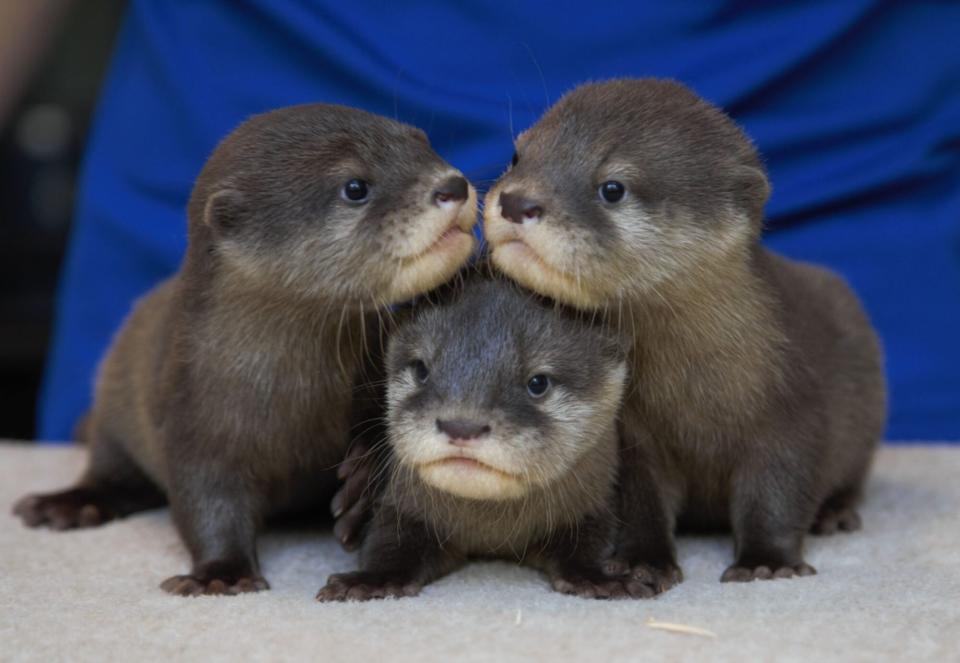A North Carolina Aquarium Needs Help Naming Its Adorable Trio of Otter Pups
After a thorough investigation, we've determined that the only thing cuter than one otter pup is three otter pups.
The North Carolina Aquarium at Fort Fisher (NCAFF) currently has a whole lot of cuteness on their hands and they need our help. While most of us aren't qualified to care for the Kure Beach aquarium's trio of Asian small-clawed otters, we can assist in the naming process.
According to a news release, the otter pups born on May 21 "now have their own unique personalities and the aquarium team is ready to give them their own unique names." With staff input, the choices have been narrowed down to four trios of names, and the aquarium has put it to a vote.

NC Aquarium at Fort Fisher
"The team at the aquarium researched and shared meaningful naming ideas based on the native habitat of Asian small-clawed otters and the unique circumstances of when they were born. We're sharing the top four trios of names and asking our community to vote for their favorite," Shannon Anderson, NCAFF otter keeper, said in a statement.
Things to keep in mind: The pups were born during a full moon, King Tide, and a storm. Asian small-clawed otters are native to Indonesia, southern China, southern India, Southeast Asia, and the Philippines.
The otterly adorable choices include:
Stella, Mae, and Selene: Moon, Thailand moon goddess, and goddess of the moon.
Padma, Bulan, and Melati: Indonesia's three national flowers are the Giant Padma, Anggrek bulan, and Melati putih.
Tala, Reyna, and Ula: Bright star, queen, and small one.
Java, Bali, and Nusa: Names of volcanic islands in Indonesia.
Asian small-clawed otters are the smallest of the otter species and are currently listed as vulnerable on the International Union for Conservation of Nature's Red List of Threatened Species. A number of threats, including residential and commercial development, deforestation, the illegal pet trade, pollution, climate change, and poaching, all contribute to their population decline.
Voting is open now! Click here for more information on the pups and to cast your ballot.

